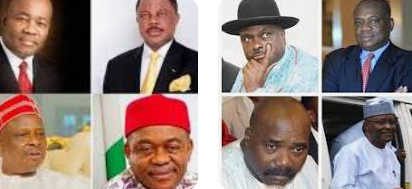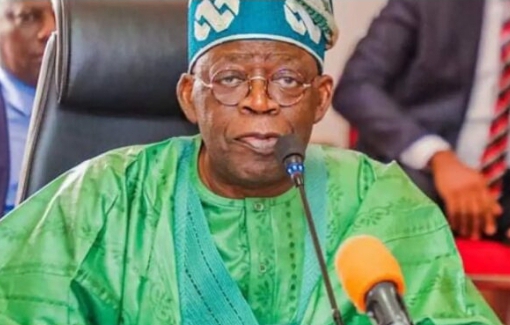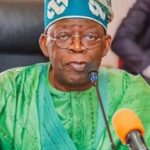[By Idowu Faleye: +2348132100608]
“I gave my heart to seek and search out by wisdom concerning all things that are done under heaven: this sore travail hath God given to the sons of man to be exercised therewith.”-Ecclesiastes 1:13. This passage highlights the existential toil and struggles that accompany humanity’s search for meaning. It’s a powerful reminder of the futility of material pursuits when wisdom and service are neglected. This truth is especially poignant when we consider the destructive effects of corruption and the unbridled pursuit of personal fortune by Nigerian leaders who should be focused on serving the masses.
Corruption in Nigeria is not just a buzzword; it is an entrenched system that has impeded the nation’s growth for decades. It can be defined as the abuse of entrusted power for private gain, and in Nigeria, it manifests across virtually all sectors, from politics to business, and even in day-to-day public interactions. According to the 2023 Transparency International Corruption Perceptions Index, Nigeria ranks as one of the most corrupt countries in the world. The nation loses an estimated $18 billion annually to corruption, according to the World Bank, and from 1960 to 2020, over $400 billion has reportedly vanished through corrupt practices.

How can a nation so richly endowed with natural resources, particularly oil, continue to struggle with poverty, inadequate infrastructure, and underdevelopment? The answer lies in the failure of leadership to prioritize the welfare of the people over personal gain. Nigeria, despite being one of the largest oil producers globally, sees its citizens struggling with high levels of poverty. The disparity between the country’s resources and the quality of life of its people is glaring, and it reflects the deep-rooted corruption that has plagued every administration.
The wickedness of Nigerian leaders is evident in their exploitation of public office. For many, holding a political position is not a call to serve but an opportunity to amass wealth. They see public office as a golden ticket to luxury and excess, living extravagantly while the masses suffer from basic deprivation. This pattern has stifled national development and deepened inequality.
Read Also: The Devastating Impact of Rampant Corruption in Nigerian Society
Take, for example, the countless abandoned projects across the country, designed with the intent to improve the lives of the masses but left to decay due to the leaders’ disinterest once funds are diverted to their private accounts. The funds meant for roads, schools, and hospitals are instead used to purchase luxury cars, mansions, and private jets, leaving citizens grappling with dilapidated infrastructure, failing healthcare systems, and poor education.
The neglect of basic infrastructure is particularly cruel because it directly impacts the everyday lives of the people. According to the World Bank, Nigeria’s healthcare system ranks among the lowest globally. Leaders travel abroad for medical treatments, while citizens die from preventable diseases due to the lack of adequate healthcare facilities. Roads are in disrepair, schools are underfunded, and essential services are in disarray—all because leaders prioritize their own wealth over the needs of the people they are meant to serve.

Despite some efforts to combat corruption, the results have been minimal. High-profile scandals and abuses of office are rampant, yet only a handful of leaders face any real punishment. The lack of accountability has become one of the most potent enablers of corruption in Nigeria. Leaders operate with impunity, knowing that the legal system is either too weak or too compromised to hold them accountable.
For instance, several former governors and high-ranking officials have been indicted for corrupt practices, yet only a few have been convicted, and even fewer serve actual sentences. Instead of serving as a deterrent, the lack of punitive measures emboldens leaders to continue exploiting public resources, with no fear of consequence. This cycle of corruption is self-perpetuating, creating a culture where dishonesty and theft are rewarded rather than condemned.
Read Also: Nigeria’s Wicked Generations: From Slave Traders to Corrupt Youths
Nigerian leaders continue to accumulate vast amounts of wealth, properties, and luxury items, driven by the belief that such material acquisitions will bring lasting satisfaction. However, history and wisdom show that the pursuit of ill-gotten wealth is a path to emptiness. There have been many powerful Nigerian leaders whose vast fortunes disappeared shortly after their deaths, leaving their families in ruin and their communities worse off. Ecclesiastes reminds us that material wealth, when acquired without wisdom and service, is futile.
The satisfaction derived from luxury goods and wealth accumulation is fleeting. Many of these leaders spend their lives in the pursuit of more—more power, more money, more possessions—only to find that it brings no real fulfilment. As they pass, their wealth often dissipates, revealing the futility of their lifelong pursuits.

Wealth amassed through corruption brings no lasting happiness or fulfilment. In the end, it is all vanity. The words of Ecclesiastes, “Vanity of vanities, all is vanity,” could not be more appropriate when considering the lives of many corrupt Nigerian leaders. Their ill-gotten riches, which they believed would secure them status and respect, often lead to disgrace. Several leaders who once wielded immense power and wealth now live in obscurity or shame, their fortunes gone, their legacies tainted by the stench of corruption.
The fall of once-powerful Nigerian leaders serves as a cautionary tale. The mansions, private jets, and lavish lifestyles that once defined them are soon forgotten, and the wealth that brought them temporary joy does not endure. Instead, their communities, left in the wake of their greed, remain impoverished, and their families often lose the very fortunes they fought so hard to accumulate.
Read Also: How Nigeria’s Stolen Wealth is Shaping Its Future
Nigeria desperately needs a new breed of leaders—leaders who view public office as a platform for service rather than personal enrichment. The current mindset, driven by greed and materialism, has failed the nation. Leaders must abandon the pursuit of wealth as the primary goal of governance and instead focus on improving the welfare of the people.
The vanity of ill-gotten wealth should serve as a lesson to aspiring leaders. They must recognize the emptiness of material gain and instead pursue a legacy of service. This shift in mindset is crucial if Nigeria is to overcome the corruption that has plagued it for so long.
Read Also: Nigeria’s Masses Struggle with Inequality and Exclusion from the Nation’s Commonwealth.
True leadership is not about what can be gained for oneself but about what can be done for others. Public service is a duty, a sacred responsibility to better the lives of the people. Nigerian leaders must embrace this concept of leadership, recognizing that their legacy will not be defined by the wealth they amass but by the impact they have on the nation.
History remembers leaders who serve with integrity and dedication as heroes. Those who amass wealth at the expense of their people are remembered only as cautionary tales—symbols of failed governance and broken promises. The future of Nigeria depends on its leaders recognizing that true fulfilment and lasting legacy come not from material wealth but from service to the nation.
Read Also: The Hidden Margins Between Politics and Governance in Nigeria
As the preacher in Ecclesiastes wisely observed, all is vanity—life is fleeting, and the pursuit of wealth for its own sake is ultimately meaningless. Nigerian leaders must realize that their time on earth is short, and the only legacy worth leaving is one of service and integrity.
The nation’s potential is immense, but it cannot be realized as long as leaders continue to exploit public resources for personal gain. To break free from the chains of corruption, there must be a concerted effort to embrace selflessness and integrity in leadership. Only by doing so can Nigeria rise above the challenges of underdevelopment and realize the true potential that lies within.
Read Also: The Northern Political Agenda and the Antics of El-Rufai’s Political Game
The time for change is now. Leadership should not be about the profit or glamour of office. Leadership, in its purest form, should be about duty and responsibility.
References:
Transparency International. (2023). Corruption Perceptions Index 2023. Retrieved from https://www.transparency.org/en/cpi
World Bank. (2020). Nigeria Economic Report. Washington, DC: The World Bank. Retrieved from https://www.worldbank.org/en/country/nigeria/publication/nigeria-economic-report
Oluwadare, A. J. (2016). Corruption and Nigeria’s Development: Causes and Consequences. Journal of Governance and Development, 12(2), 23-45.
Obuah, E. (2010). Combating Corruption in Nigeria: The Nigerian Economic and Financial Crimes (EFCC). African Studies Quarterly, 12(1), 17-25.
Smith, D. J. (2007). A Culture of Corruption: Everyday Deception and Popular Discontent in Nigeria. Princeton University Press.
Bassey, C. O., & Ukoha, U. K. (2018). Corruption, Governance, and Economic Development in Nigeria. International Journal of Social Science and Economic Research, 3(5), 1734-1743.
Ogunrotifa, A. B. (2012). Corruption and the Challenge of Economic Development in Nigeria. Research on Humanities and Social Sciences, 2(6), 1-12.
Okafor, E. E. (2017). Public Office as a Source of Wealth: The Nigerian Experience. African Journal of Political Science and International Relations, 11(8), 207-220.
Ribadu, N. (2006). Corruption in Nigeria: An Overview. Lecture presented at the 3rd Annual General Meeting of the Nigerian Bar Association, Abuja, Nigeria.
Kperogi, F. A. (2019). The Corruption Conundrum in Nigeria: Why Leadership Fails. Lagos: Reconnect Africa Publications.
Born in Ekiti State, Nigeria, Idowu Faleye is a Policy Analyst and IBM-certified Data Analyst with an academic background in Public Administration. He’s the Lead Analyst at EphraimHill Data Consult and the Publisher of EphraimHill DataBlog, which posts regular topics on issues of public interest. He can be reached via WhatsApp at +2348132100608 or email at ephraimhill01@gmail.com
© 2024 EphraimHill DC. All rights reserved.This article is the intellectual property of EphraimHill DataBlog. For permission requests, please contact EphraimHill DC at ephraimhill01@gmail.com.











































![The Trend of Insecurity in Nigeria. [Part 2]](https://ephraimhilldc.com/wp-content/uploads/2024/09/Computer-Monitoring-of-Remote-areas.png)



































